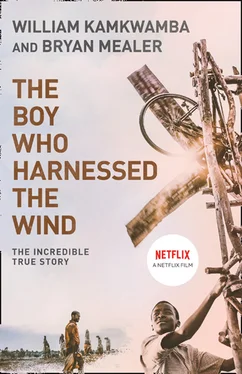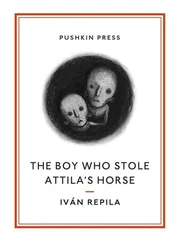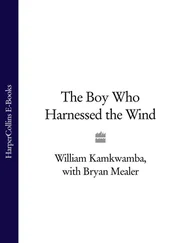Making nursery beds is done just before the rainy season when the sun is the hottest. The work is hard and dirty, and my father quickly felt exhausted. During those first weeks, he’d dream of his stall at the trading center, how he used to just sit and chat with friends and customers, how he’d knock off at lunch for an hour to see his family, even take a quick nap before returning to work. It would have been easier to just tell his brother he’d made a mistake and return to Dowa, but my father buckled down and pressed on. He’d seen how much money Uncle John was earning, and he wanted the same for himself. Often he’d work so hard and late in the day that his brother would come looking for him, thinking he’d tripped and drowned in the dambo .
“Take a break, brother,” he’d say. “Leave some for tomorrow. Reserve your strength, you’ll need it.”
“Just a bit longer,” my father would say, his body covered in mud from head to toe.
WHEN UNCLE JOHN HAD visited Dowa and mentioned having a big place for my father, he wasn’t talking about the living arrangements. With five people, our little house quickly became crowded.
After ten long hours of working in the sun, my father would come home and then start working on building our new house. Weekends were also spent this way. The bricks were fashioned out of grass and clay, which was pressed into a wooden mold about seventy-five centimeters long.
To get the clay, my father dug deep pits near the fields that swallowed his entire body. He’d scoop buckets of clay that weighed a hundred pounds, hoist them onto his shoulders, and climb out using steps he’d carved into the wall with a hoe. He’d then cart the pails two kilometers back to the house, dump them, then do it all over again.
After molding the bricks, my father spent days in the valley hacking the long-stemmed grasses to be used for roofing, then tied them into round bales. Sometimes John sent a few seasonal workers from his fields to help with the building, but my father did it mostly alone. After two months, we had a two-room house. Later, he’d say it was the hardest thing he’d ever done.
“Well done, brother,” Uncle John said as he passed, joking with my father, who was about to collapse from exhaustion. “This is a good house. You know, every man needs a good house.”
We lived in this house for three years until our growing clan became too big. Before long, there were five kids in our family, with me the only boy. By this time my father had earned enough on the farm to hire some men to construct two new buildings. The first one had a family room and master bedroom, plus a grain storage area. The other building, just across a narrow open corridor, had a kitchen, plus a separate bedroom for me and my sisters.
My bedroom became my fortress against the squabbling girls, a hideaway where I could be alone with my thoughts. I became a terrible daydreamer, partly because as I got older, the folktales of my childhood began to pale in comparison to the fantastic goings-on at the farm—things more real and incredible than any fiction my father could have imagined himself.
ONE OF THE SEASONAL workers Uncle John hired to help with planting and harvesting was named Mister Phiri, a man of near-heavenly strength. Uncle John didn’t even use tractors to clear the land and trees. Instead he sent Phiri, who was so powerful he’d walk from tree to tree and rip them from the earth, as if they were weeds.
Everyone knew Phiri’s secret was mangolomera, a form of magic that delivered superhuman strength. Mangolomera was the ultimate self-defense, a kind of vaccine against weakness. Only the strongest wizards in the district could administer this potion—a kind of paste made from the burned and ground bones of leopards and lions, and mixed with roots and herbs. The medicine was rubbed into small incisions made on each knuckle, usually by a magic razor. Once mangolomera was in your blood, it could never be reversed and was always gaining strength. Only the toughest men could manage this ever-growing power, or else quickly self-destruct.
Phiri was so strong that no person or animal could challenge him. Once while working in the fields, a black mamba snake slithered over his foot and prepared to strike. But Phiri wasn’t afraid. He took a simple blade of grass and whipped the snake on the back, leaving it paralyzed. He then grabbed it by the head and snapped its spine. People said he carried another mamba in his pocket as a charm, and this snake was too afraid to bite.
But Phiri’s power was so potent and always growing that it made him constantly want to battle. When this happened, my father had to intervene.
One afternoon I was playing in the yard when I heard a frightening noise coming from the fields, like the sound of twenty leopards roaring. I raced down to find Phiri nose to nose with another worker named James. Phiri was breathing heavily and ready to attack. His hands were in fists and the veins in his arms bulged like tree roots. When he opened his mouth to scream, the earth below our feet seemed to tremble in fright. Someone said Phiri had given James money to buy some items in Kasungu. But James wasn’t educated and couldn’t read or count, so the shopkeepers cheated him and kept their pay.
Before I knew it, Phiri began punching James. Phiri was short and thick, and James was tall and also very strong. The two traded blows back and forth, and for the moment, James was holding his own. But I knew it was only a matter of time before Phiri’s mangolomera exploded and crushed poor James.
Around that time, my father also heard the commotion. Fearing for James’s life, he rushed over to break up the fight. Although mangolomera never weakens, it can be neutralized for short periods of time using the green vines from a sweet potato plant. You know how Superman becomes weak at the sight of those shiny green crystals? The same is true for magic people and sweet potatoes, I don’t know why.
Anyway, the second Phiri saw my father arrive, he shouted to him, “Mister Kamkwamba, PLEASE …some vines for my head! I don’t want to kill this man!”
Seeing no vines nearby, my father instead ran over to Phiri and wrapped him up in his arms. Phiri kicked and screamed like a tethered tiger, but my father held on tight. He took him to our garden and pulled several long stems, then wrapped Phiri’s head and elbows. Within seconds, Phiri’s heart cooled down, and he collapsed from exhaustion. That day, seeing my father wrestle something as dangerous as mangolomera made me believe every story I’d been told about the Pope’s awesome power.
The next morning, Phiri arrived for work looking and feeling okay. However, James reported being sick and had to miss the entire week. His hands and arms were so swollen he couldn’t move, and his legs wouldn’t even carry him. I’d watched James defend himself well, so this wasn’t the result of Phiri’s blows. Phiri’s magic had been so strong it had simply rubbed off like poison.
PHIRI HAD A NEPHEW named Shabani who went around boasting that he was a real sing’anga who possessed mangolomera . Gilbert and I suspected he was just a lot of talk, but we were never completely sure. Shabani was a small boy like us and not that powerful, yet he boasted like a man with biceps the size of anthills. This made us wonder. Since Shabani never went to school, choosing instead to work the fields with his uncle, he was usually hanging around the house when I returned in the afternoons.
At the time, I was nine years old and not very strong. I wasn’t the most athletic chap, either. Despite an incredible love for soccer, I wound up on the bench most every match. Bullies stalked and tortured me in the schoolyard. It was a time of crippling humiliation.
Читать дальше












